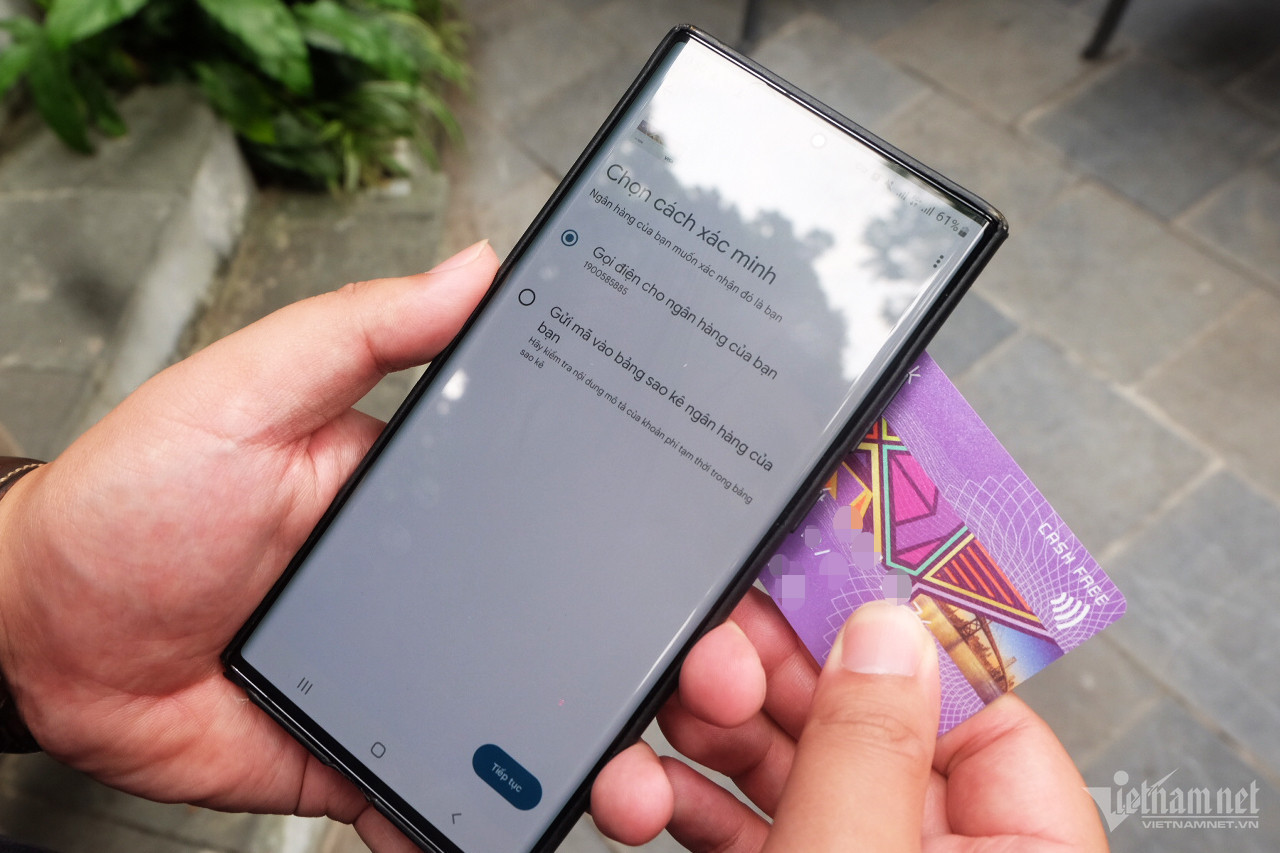
A workshop on ‘Enhancing security and safety for cashless transactions’ was held on June 14 in HCM City as a part of the 2024 Non-Cash Day program.
The program was launched to help promote non-cash payments in Vietnam and create a non-cash society.
HCM City Vice Mayor Nguyen Van Dung said non-cash transaction is one of the major tasks of municipal authorities. Since 2020, measures have been applied to promote the activity.
All public hospitals in HCM City are using the non-cash payment method. In the retail industry, three wholesale markets and 222 traditional markets, 237 supermarkets and 48 shopping malls in the city are using non-cash payment.
The non-cash payment proportion in level-4 public service has reached 30 percent, thereby contributing to the promotion of non-cash payments.
Le Anh Dung, deputy director of the State Bank of Vietnam's (SBV) Payment Department, cited statistics at the press conference about ‘2024 Non-cash Day’ that non-cash payments via mobile phones in the first four months of the year increased by 59.26 percent in quantity and 35.91 percent in value compared with the same period last year.
The figures, demonstrating the high growth rate and positive signs about non-cash payment, show the popularity of banking services and success in creating and developing a digital ecosystem.
The number of payment transactions via the internet and mobile phones in the 2021-2023 period grew by 52 percent and 103.3 percent, respectively, while the number and value of payments via QR Code grew by 170 percent.
By the end of 2023, Vietnam had 182 million personal payment accounts and 87 percent of adults with payment accounts.
Regarding accounts with eKYC (Electronic Know Your Customer), 40 commercial banks have reported that they have 35 million active payment accounts.
The figures of the first four months of 2024 compared with the same period last year showed that non-cash payments grew by 57percent in quantity and 39.49 percent in value. The payment via the internet grew by 47.48 percent and 30.2 percent, respectively; via mobile phones by 59.26 percent and 35.91 percent, respectively.
Meanwhile, transactions via ATMs decreased by 14.15 percent to 7.84 percent.
Over the last two years, SBV has been cooperating with central banks in the region, including Thai, Cambodian and Lao, to try bilateral payment connections via QR Codes in order to promote cross-border payment via QR Codes.
SBV has advised agencies to create favorable conditions for non-cash payments, including a law on money laundering prevention and control, a law on credit institutions 2024, and decree 52 on non-cash payment, expected to take effect from July 1, 2024.
The decree5 2 sets a basic legal framework for non-cash payment activities, creating favorable conditions to provide new products and services with new convenient and safe payments.
SBV is drafting circulars that guide the implementation of Decree 52 for a legal framework for non-cash payment activities. Most recently, it released Decision 2345 on measures to ensure safety in online and bank card payments.
Under the decision, biometric authentication will be required when users transfer more than VND10 million.
The infrastructure that serves non-cash payments, including the interbank electronic payment system, finance switching system and electronic clearance, has been upgraded.
The number of transactions via the interbank electronic payment system in 2021-2023 increased by 23.5 percent and the average payment value was VND830 trillion per day.
The number of transactions via the financial switching system and electronic clearance rose by 145.8 percent per annum and the average payment value was 20-25 transactions per day.
However, Dung said problems have arisen during the implementation of non-cash payment program and people remain hesitant to use the payment method because of security concerns.
The city has decided to promote non-cash payment activities and minimize risks for people, including new regulations on the responsibility of involved parties in non-cash transactions; and the development of infrastructure and modern and secured electronic payments.
Thai Khang